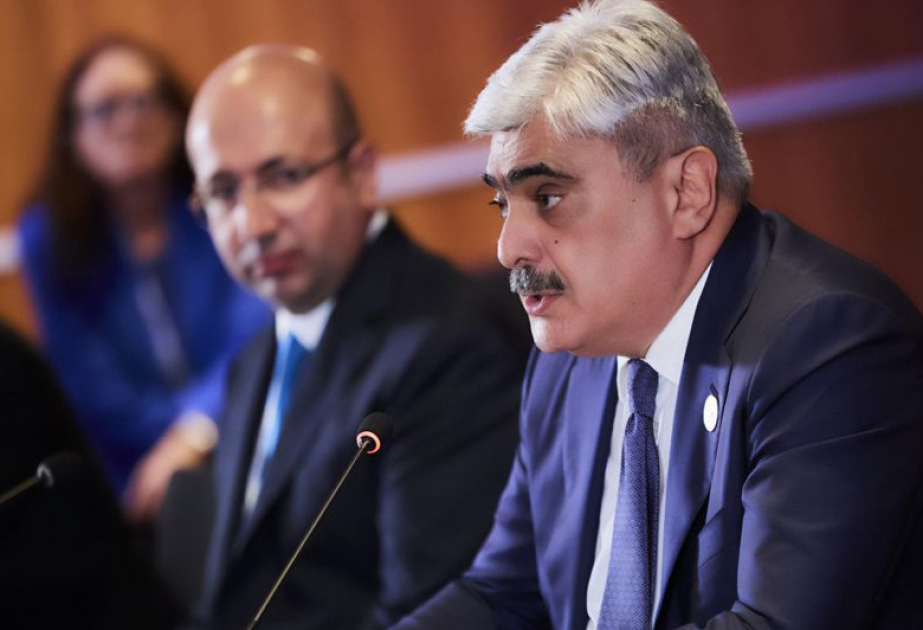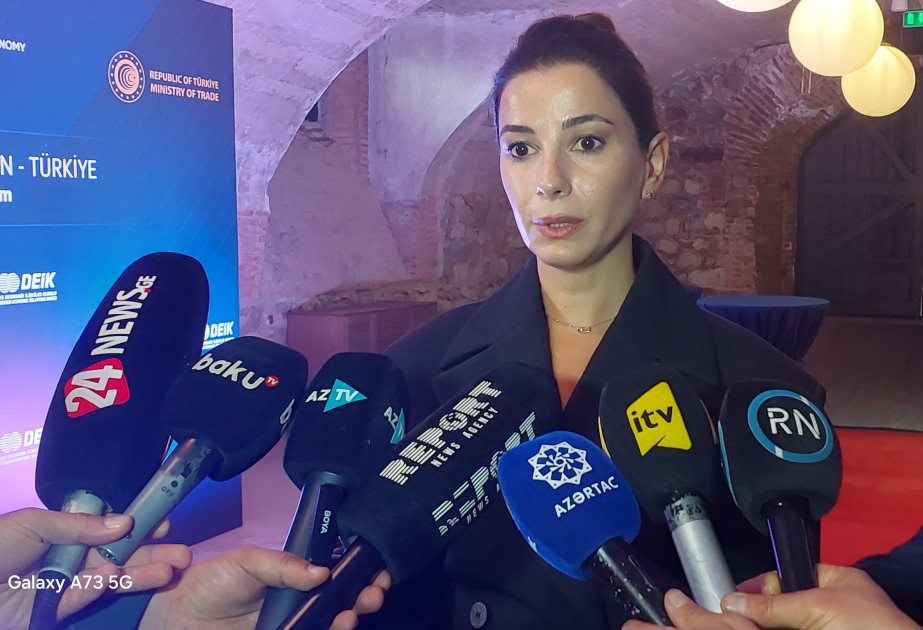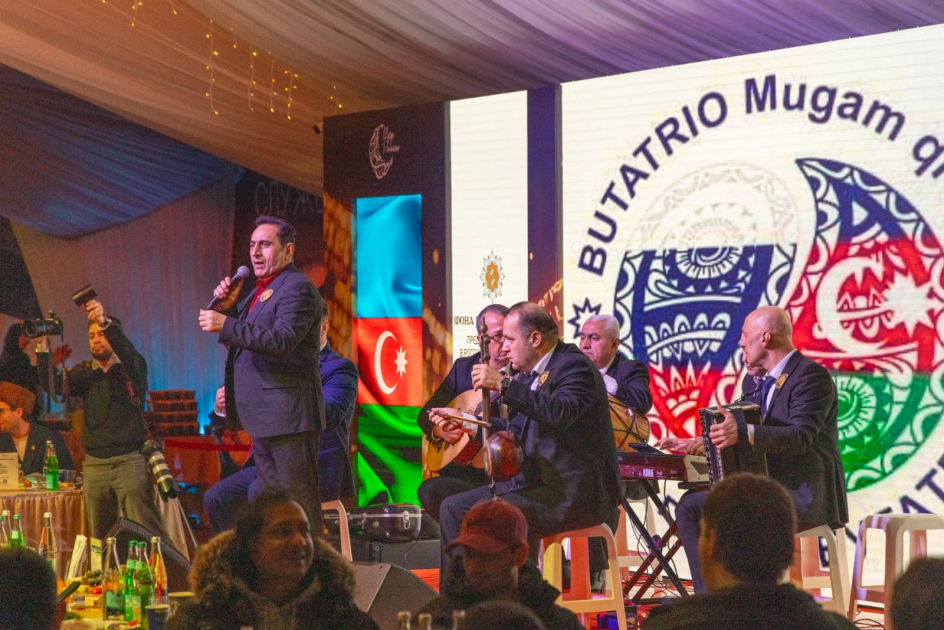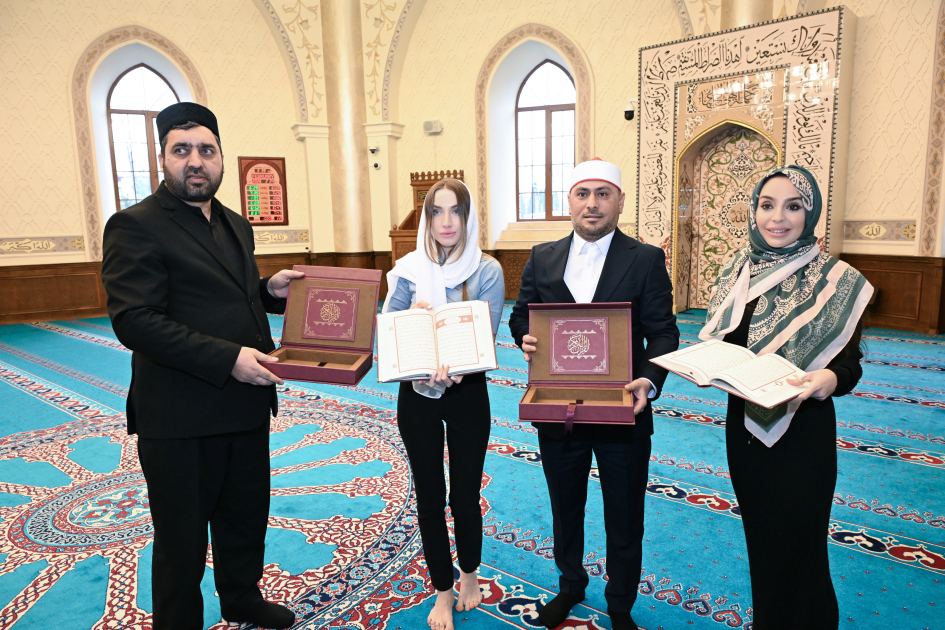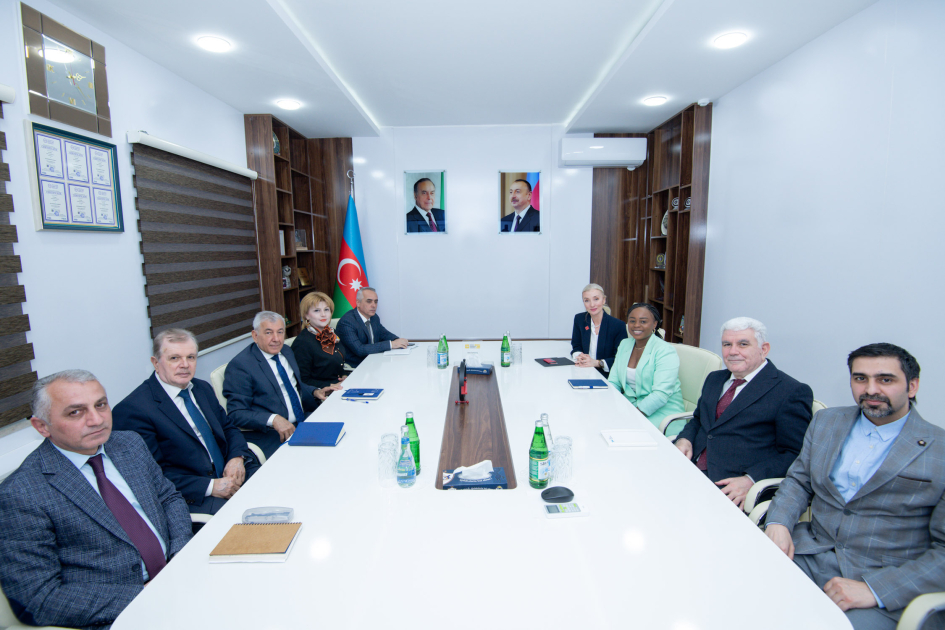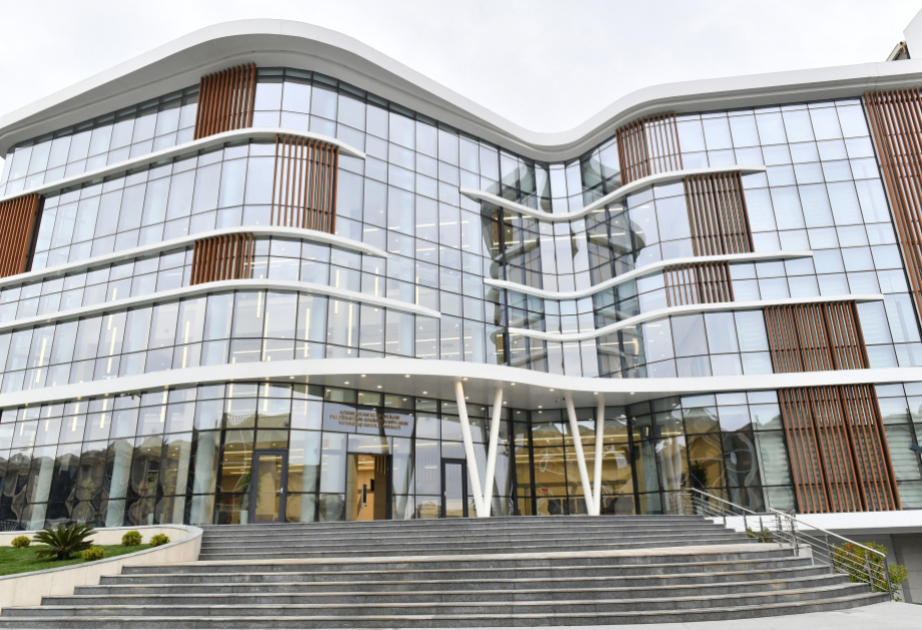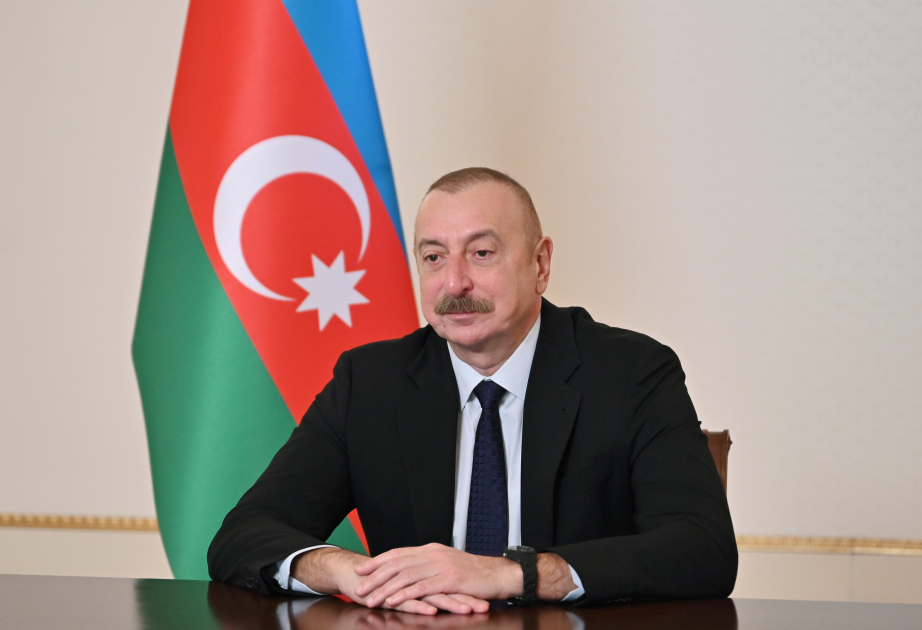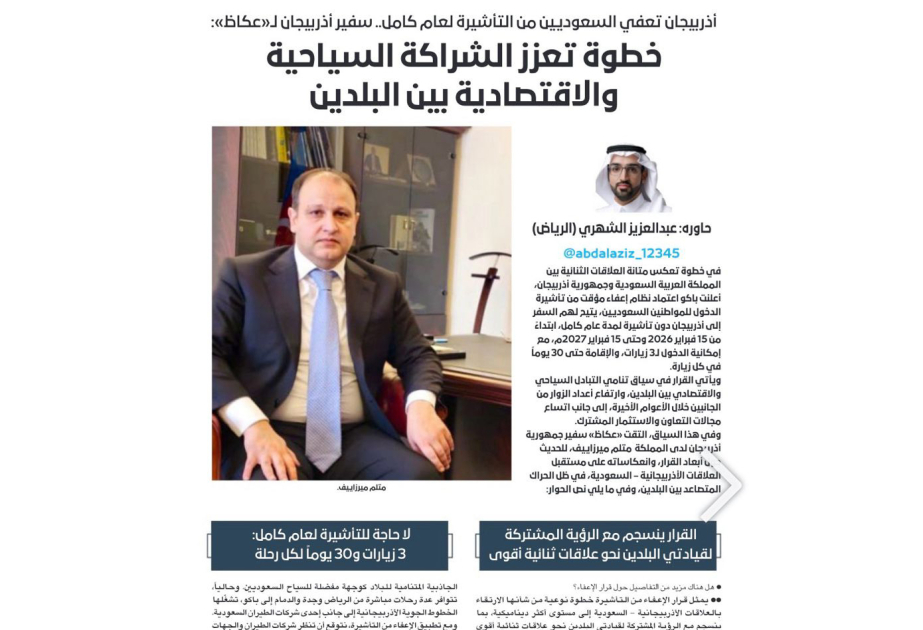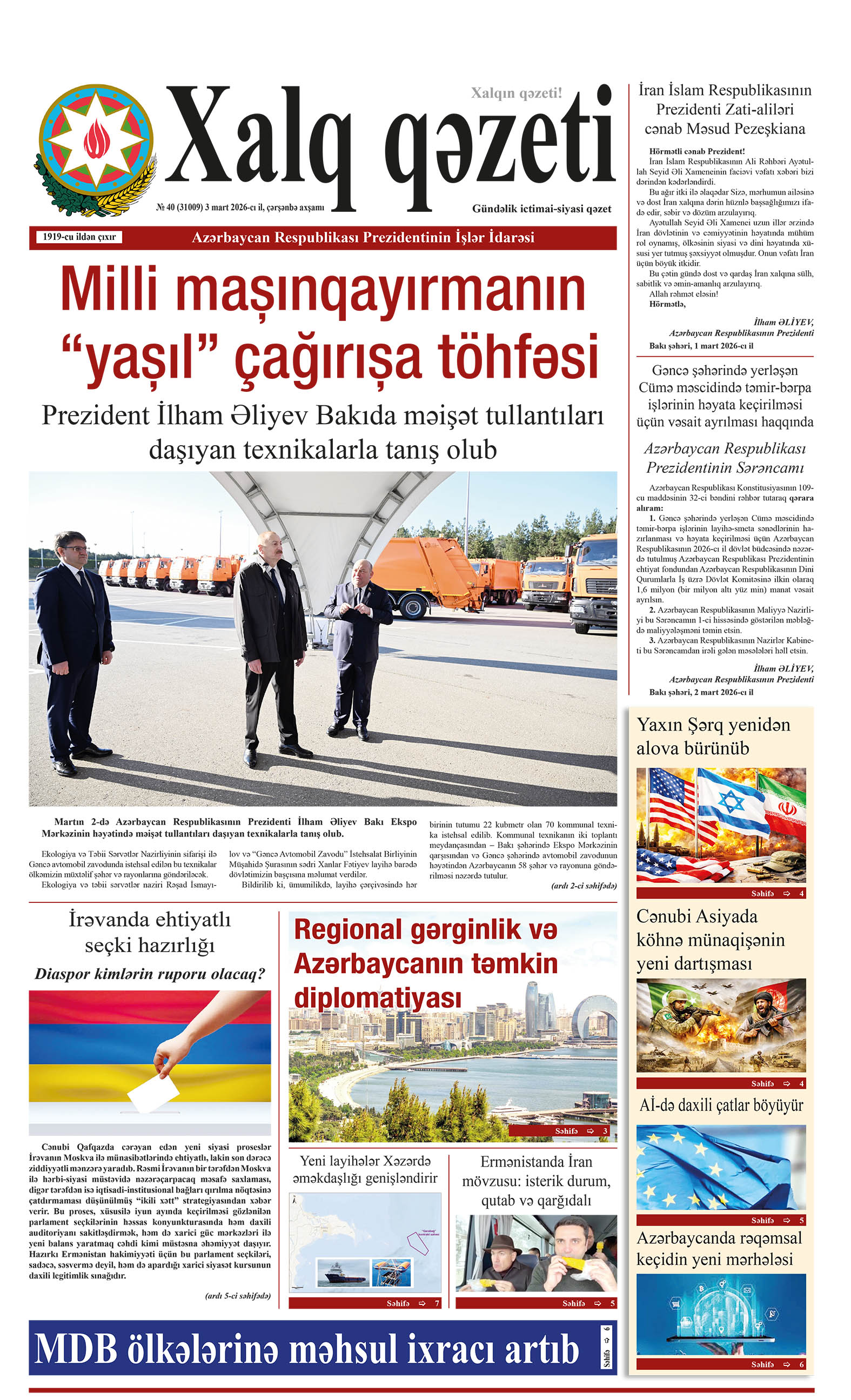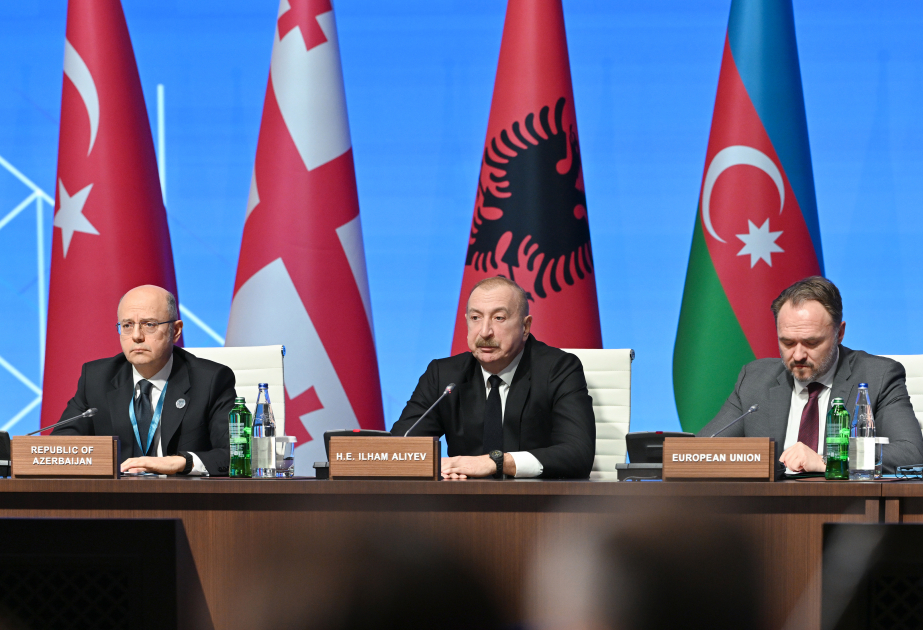Azerbaijan, in its capacity as the COP29 Presidency, in collaboration with the United Nations Economic and Social Commission for Asia and the Pacific (ESCAP), convened a Solution Session on “Human Development Principles for Climate-Resilient Inclusive Social Development”, on the margins of the Second World Summit for Social Development held in Doha.
The session, moderated by Dr. Srinivas Tata, Director of ESCAP’s Social Development Division, brought together ministers, senior officials, and international partners to discuss how countries can integrate education, health, decent work, and social protection into climate resilience strategies to advance inclusive development.
Opening the session, Samir Sharifov, Deputy Prime Minister of the Republic of Azerbaijan, highlighted the Baku Guiding Principles on Human Development for Climate Resilience, launched at COP29 in 2024, and explained how these principles provide a practical framework for embedding human development considerations into national climate and social inclusion policies. He also noted that the first-ever Human Development Day in the history of UNFCCC COPs was organized in Baku on 18 November 2024 and concluded with the establishment of the Baku Continuity Coalition on Climate and Health, jointly by the United Kingdom (COP26), Egypt (COP27), the United Arab Emirates (COP28), Azerbaijan (COP29), Brazil (COP30), and the World Health Organization (WHO).
Building on this, Armida Salsiah Alisjahbana, United Nations Under-Secretary-General and Executive Secretary of ESCAP, emphasized that applying a human development lens ensures that climate strategies promote equity, social protection, and resilience for all—particularly for women, youth, migrants, and informal workers.
Ministers from Azerbaijan, Brazil, the Philippines, and the Kyrgyz Republic, along with high-level representatives from Indonesia, Thailand, and Mongolia, shared compelling national experiences in integrating social protection, sustainable urbanization, gender-responsive policies, and education and health investments into climate resilience plans. Their examples illustrated how inclusive policies can empower communities, safeguard livelihoods, and ensure that the transition to a green economy leaves no one behind.
Global and regional partners—including the ILO, UN-Habitat, UNDRR, UNECE, WHO, ADB, AIIB, and UCLG—reaffirmed their commitment to advancing the Baku Guiding Principles, pledging continued collaboration and support to help countries translate these principles into concrete, people-centered action.
The Solution Session underscored the importance of cross-sectoral policy coherence, regional cooperation, and resource mobilization in advancing inclusive, climate-resilient social development and sustainable urbanization. Concluding the session, Elmar Mammadov, Head of the Economic Cooperation Department of the Ministry of Foreign Affairs of the Republic of Azerbaijan and Co-Lead of the COP29 Action Agenda Team, remarked:
“This Solution Session once again demonstrated the power of inclusivity and creativity—two key principles that guided the elaboration of the Baku Initiative on Human Development for Climate Resilience, including the Baku Guiding Principles—and will serve to operationalize this global initiative at the global level through the Second World Social Development Summit; at the regional level through the 82nd session of UNESCAP in Baku in April 2026—which will be the first regional session following this Summit; and at the local level through the 13th World Urban Forum (WUF13) in Baku in May 2026, where we can jointly address the housing and human development nexus.”


